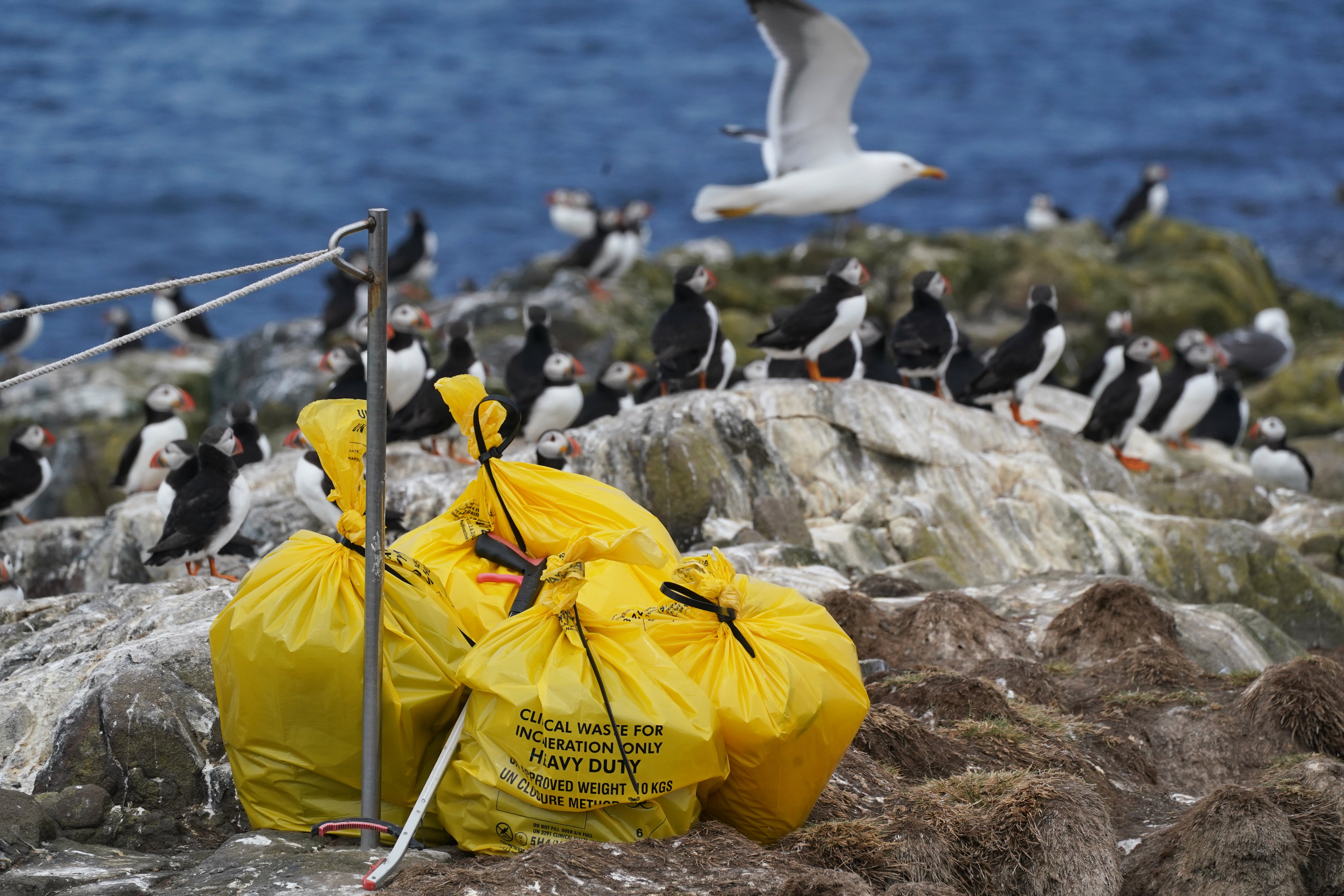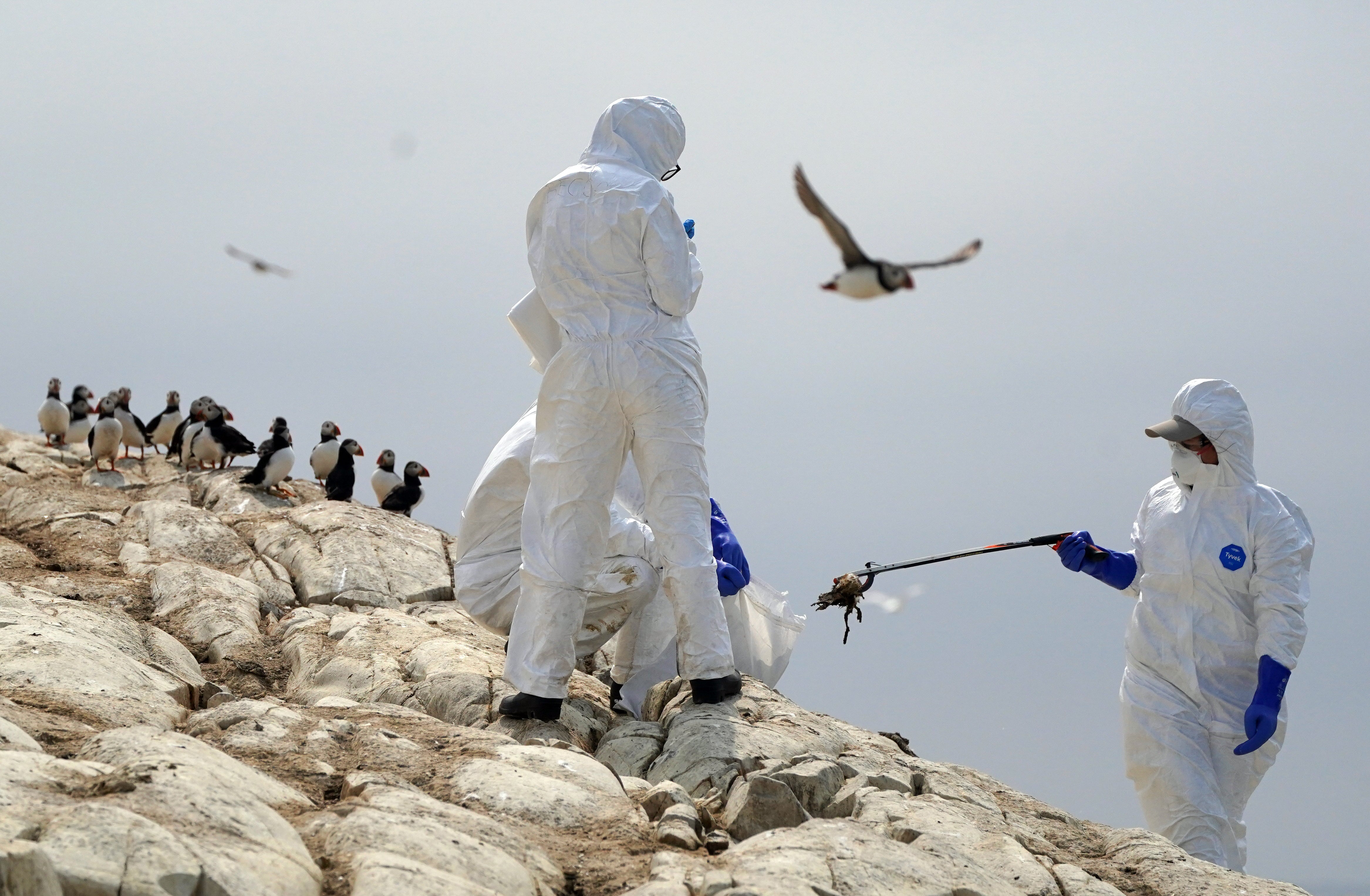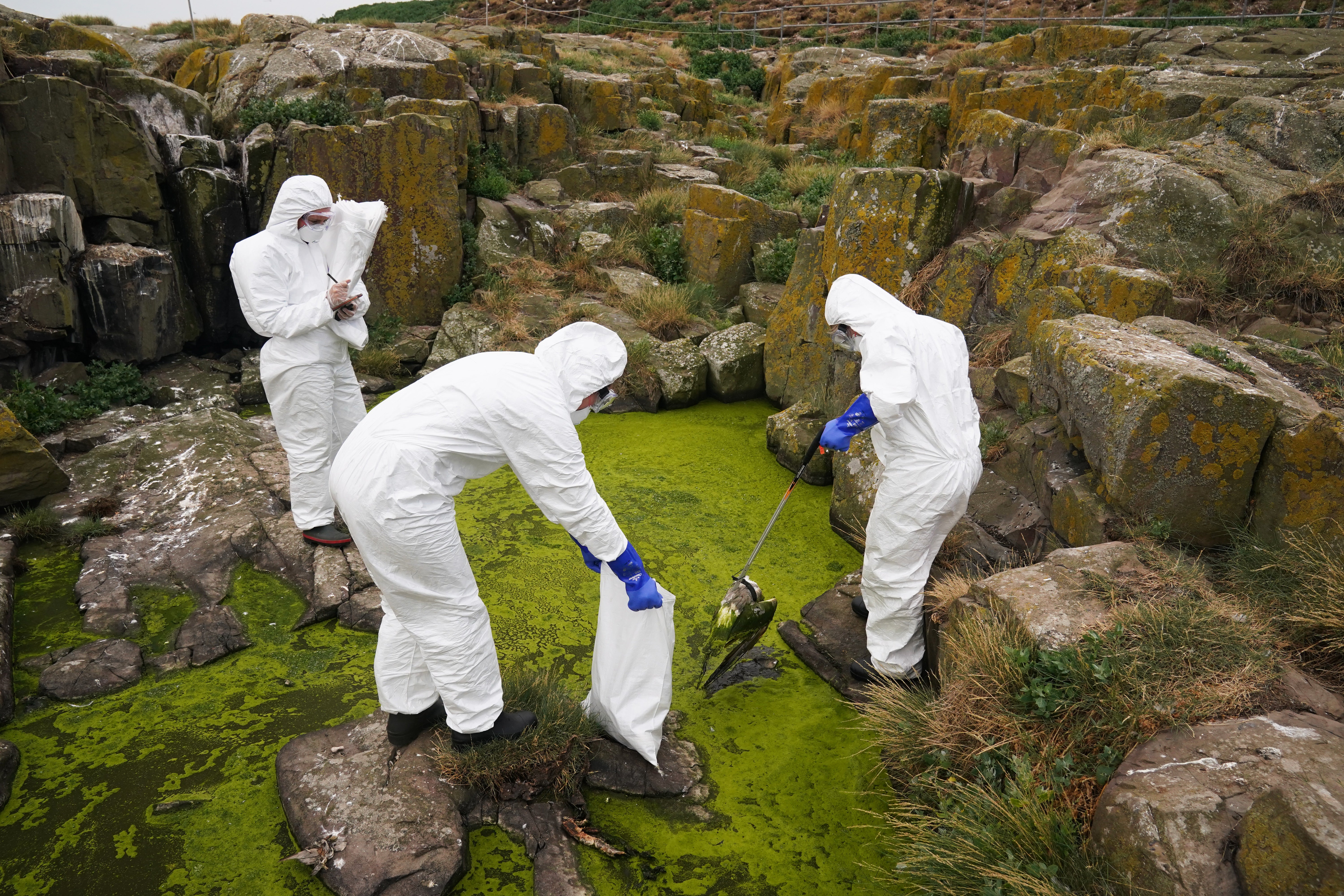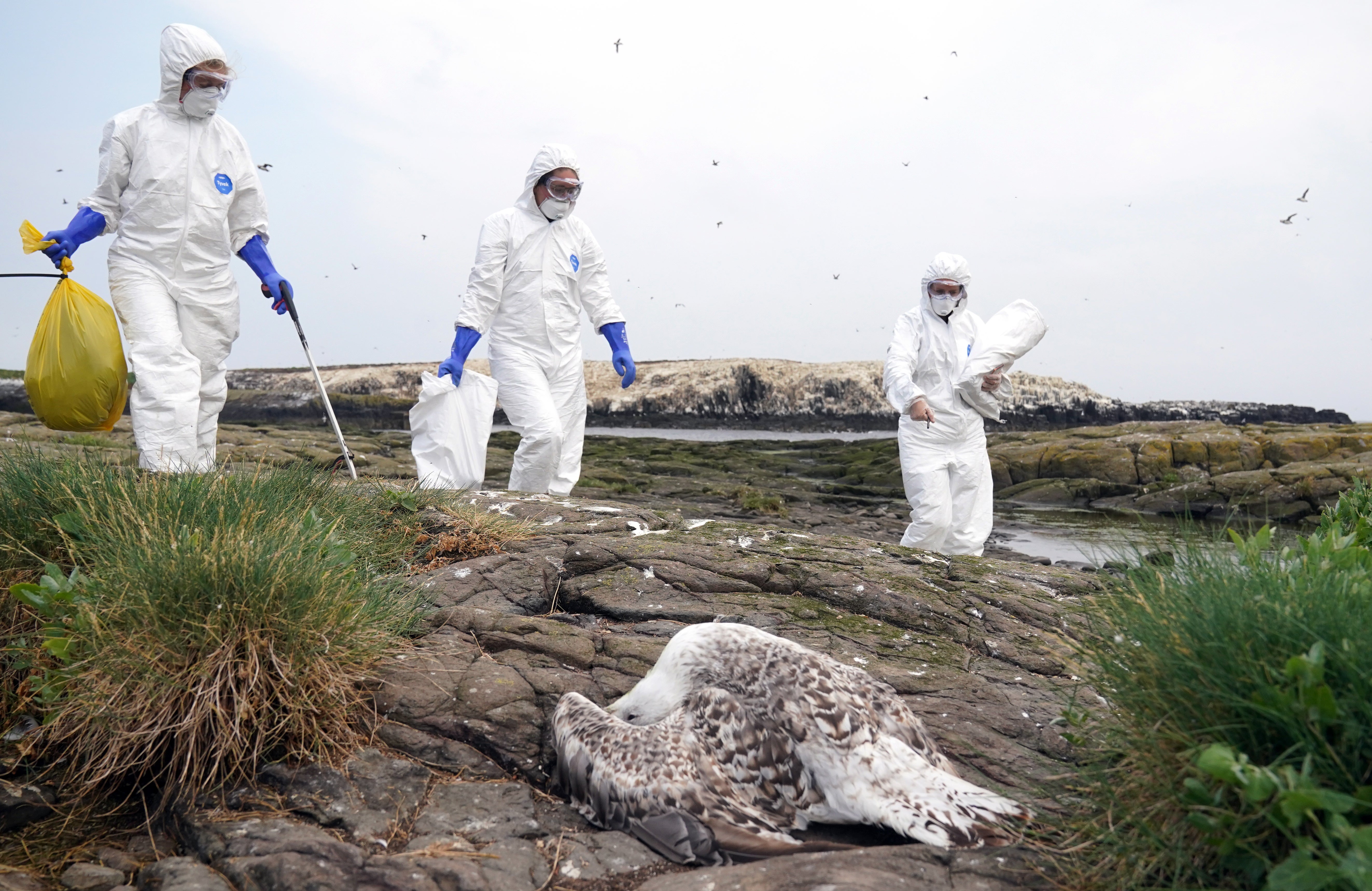Bird flu outbreak devastates Farne Islands in ‘unprecedented wildlife tragedy’
National Trust rangers collect more than 3,000 dead seabirds for incineration
Your support helps us to tell the story
From reproductive rights to climate change to Big Tech, The Independent is on the ground when the story is developing. Whether it's investigating the financials of Elon Musk's pro-Trump PAC or producing our latest documentary, 'The A Word', which shines a light on the American women fighting for reproductive rights, we know how important it is to parse out the facts from the messaging.
At such a critical moment in US history, we need reporters on the ground. Your donation allows us to keep sending journalists to speak to both sides of the story.
The Independent is trusted by Americans across the entire political spectrum. And unlike many other quality news outlets, we choose not to lock Americans out of our reporting and analysis with paywalls. We believe quality journalism should be available to everyone, paid for by those who can afford it.
Your support makes all the difference.A bird flu outbreak on one of the UK’s most important habitats, which could potentially kill tens of thousands of seabirds, has been branded an “unprecedented wildlife tragedy”.
Rangers working on the Farne Islands off the Northumberland coast have donned protective suits and so far collected well over 3,000 dead birds for incineration.
But they fear that many thousands more have succumbed to the deadly disease and fallen off the cliffs into the North Sea.
The Farnes, which are looked after by the National Trust, are an internationally-important habitat for 23 species, including puffins, with 200,000 birds living there.
Cliff-nesting birds seemed to be the worst-affected by the bird flu outbreak, with guillemots, kittiwakes and young puffins known as pufflings among those recovered.
Rangers working for the trust have been removing their carcasses to prevent further contamination.
For their own safety, they wore white hazmat suits, gloves and masks.
Some of the dead birds were ringed and the casualties include an eight-year-old Arctic tern which would have flown from the Farne Islands to Antarctica and back eight times during its lifetime, covering 144,000 miles.
Also discovered was a 16-year-old kittiwake which was ringed on the islands in 2006.

Annually, 45,000 people take a trip to the Farnes but the islands were closed to visitors at the start of this month.
Farnes’ general manager Simon Lee said: “The welfare of our staff, volunteers and visitors is our top priority as we navigate this unprecedented wildlife tragedy on the islands.
“The National Trust has cared for the Farne Islands for just under 100 years, and there are no records of anything so potentially damaging to our already endangered seabird colonies.

“The Farne Islands is a National Nature Reserve and home to approximately 200,000 seabirds, including guillemots, kittiwakes, razorbills and shags in addition to Arctic terns and puffins.
“We closed the islands to limit disturbance to the birds and are monitoring the situation daily.

“Our team of rangers are working hard to minimise the spread of the disease amongst the island’s precious wildlife.”
This strain of bird flu originated in east Asia and affected domestic flocks in the UK over the winter. It has since spread across the country to infect wild birds.
It spreads when birds come into direct contact with an infected bird, faeces, body fluids or indirectly via food and water.

The risk to humans is considered to be very low and people are rarely affected.
The National Trust has called on the government to act.
Ben McCarthy, the Trust’s head of nature conservation and restoration ecology, said: “This disease is undoing decades of hard work to restore nature and undermines the government’s own targets to reverse the decline of our threatened species and improve their habitats.
“The scale of this disaster calls for an urgent National Response Plan for the virus in wild birds.
“We need a more co-ordinated approach to ensure effective monitoring, surveillance and reporting to support research into the impacts this deadly disease is having on our wild birds across the UK.”





